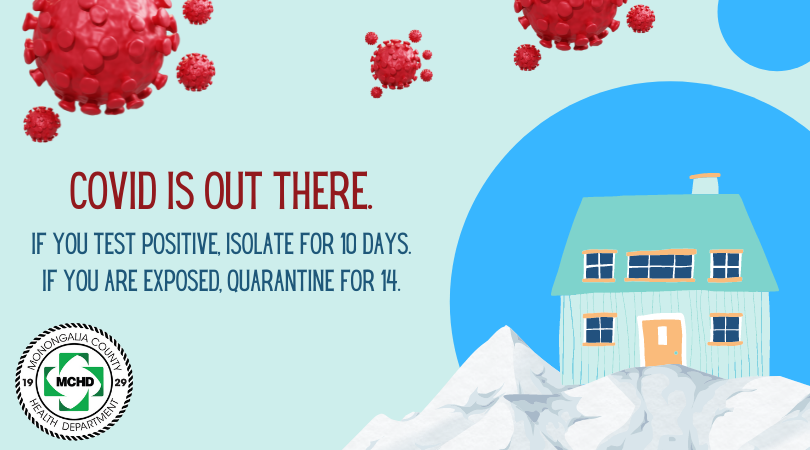Let's not continue January COVID-19 spike into February

Feb. 2, 2022
By Mary Wade Burnside
The number of people I know who have gotten COVID literally tripled — at least — in the month of January since the pandemic began in March 2020.
I am not exaggerating. If anything, I am being conservative.
I call it the COVID Class of January ‘22. I’m an alumna myself.
I started off the new year with fatigue and a positive test result, even though I’m vaccinated, boosted, masked up in public and I limit where I go.
I still don’t know where I got it and I spent some time feeling bad that I apparently had done something careless to get sick. I had managed to avoid the virus for nearly 22 months and couldn’t figure out what had changed.
As more friends began sharing their diagnoses, it became pretty clear what the difference was. From the beginning, public health officials stated that the omicron variant is incredibly infectious, and they were very correct.
My employer, Monongalia County Health Department, recommends a 10-day isolation period for individuals who test positive. Because my husband tested negative, that meant I had to isolate in my own home, staying in one room for most of the time.
It wasn’t fun, but I absolutely didn’t want to take a chance on passing the virus on to him or anyone else.
Looking back, and listening to the accounts of my friends, I realize how lucky I was, not only to be able to isolate for 10 days without being encouraged to return to work too soon, but also because I was able to take advantage of free community testing conducted by MCHD at the WVU Rec Center when I realized my fatigue was off the charts.
A relative in a different county with worse symptoms had a much more difficult time getting a test, which she could only do with a doctor’s order. It got lost in the system, leading to a delay and a long wait at the site on her part.
MCHD has been getting some pushback on its isolation guidance, as well as the advice for individuals who have been exposed to quarantine for 14 days.
But we maintain that it doesn’t make sense to advocate for fewer isolation and quarantine days now, when we’re seeing the highest seven-day rates per 100,000 of COVID cases than we have for the entire pandemic.
For instance, in early January, for the school-aged population of ages 6-17 in Monongalia County, the seven-day average per 100,000 was 78 and then reached as high as 375 about two weeks later. Anything greater than 100 per 100,000 is considered high transmission by the CDC.
As my boss, Dr. Lee B. Smith, MCHD’s medical director has said, “This is not the time to change horses midstream.”
We have added a statement about MCHD’s guidance to our website, in which Dr. Smith expands on the information that has been used to make these decisions.
In part, it reads, “Cutting quarantine from 14 to 10 days still misses 10% of people who are delayed in becoming infectious. If our daily number of infected is 330, then on day five there are an additional 31% infectious, which is an additional 93 individuals. And they in turn may infect many more.
“The same applies to quarantined individuals who, on any given day, are great in number, and missing 10% has huge ramifications. While some like to believe that the omicron variant is less virulent, the death rate has gone up 11% nationally and the hospitalization rate by 14%. It has now killed as many people as the delta strain in a much shorter time.”
Believe us, we understand that it’s frustrating. We’re living with COVID too. And you can bet MCHD employees will celebrate the day when our work lives aren’t consumed by testing and vaccinating and trying to convince community members to get tested and vaccinated… and boosted.
Following MCHD’s guidance on isolating, quarantine and getting vaccinated will make that day come sooner.
As will getting vaccinated. If you have not done so yet, please make an appointment to get vaccinated online at this link. Monongalia County Health Department also conducts COVID testing most weekdays at the WVU Rec Center. Consider getting tested five days following participating in a large event or prior to gathering with friends and family, not only if you have symptoms or a known exposure.
You don't want to be the person who spreads COVID to someone who doesn't tolerate it as well as you do.
Mary Wade Burnside is the public information officer at Monongalia County Health Department.